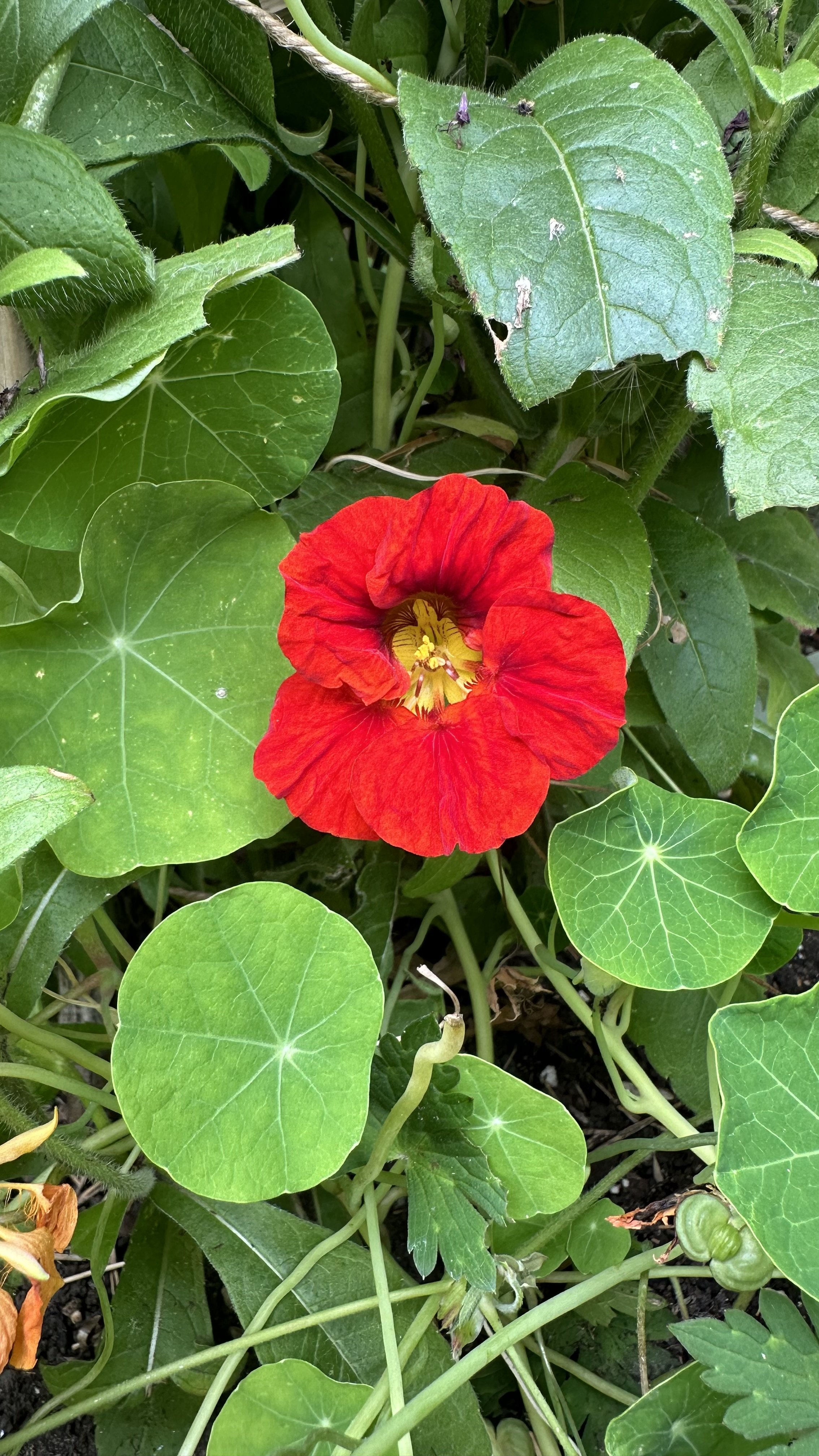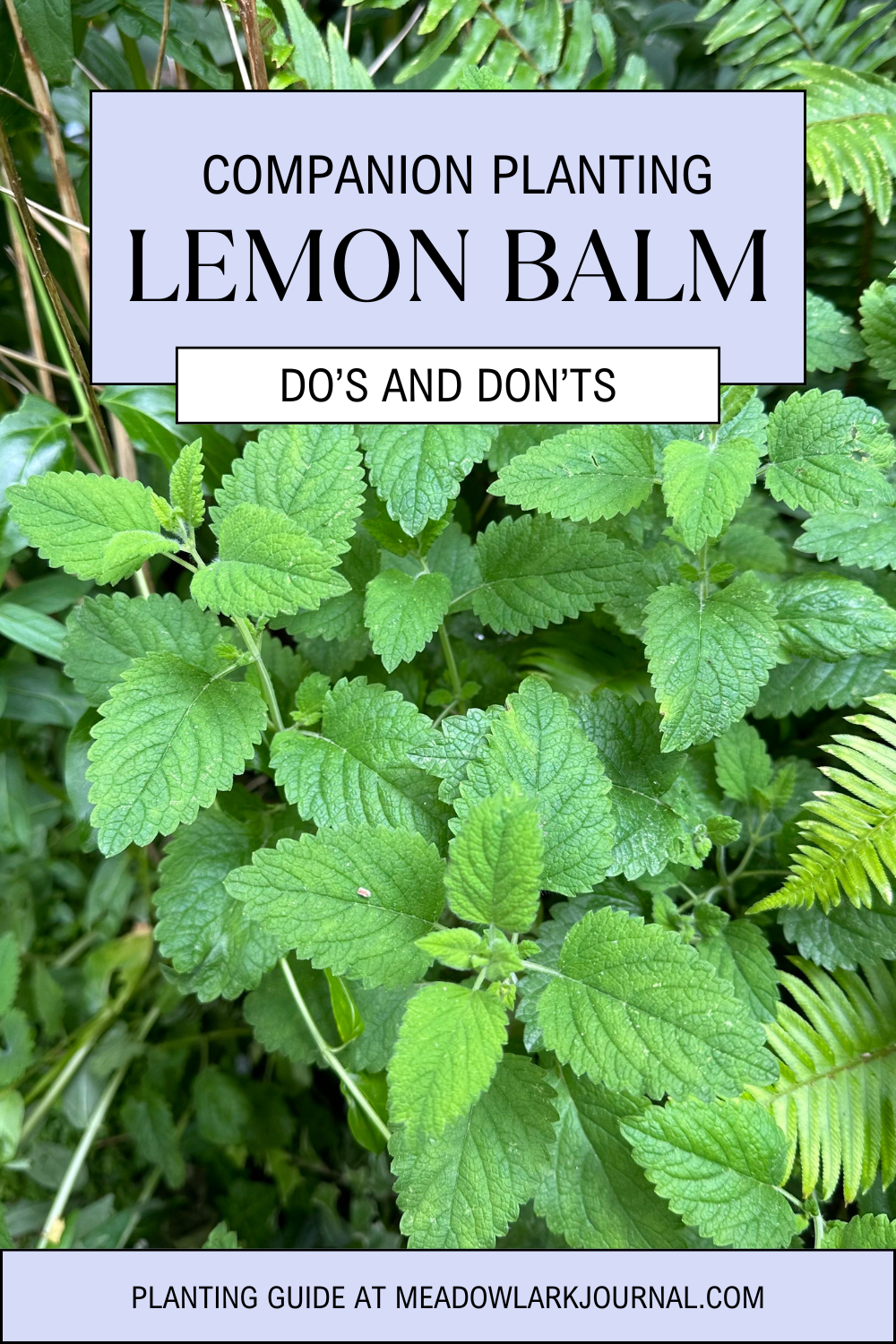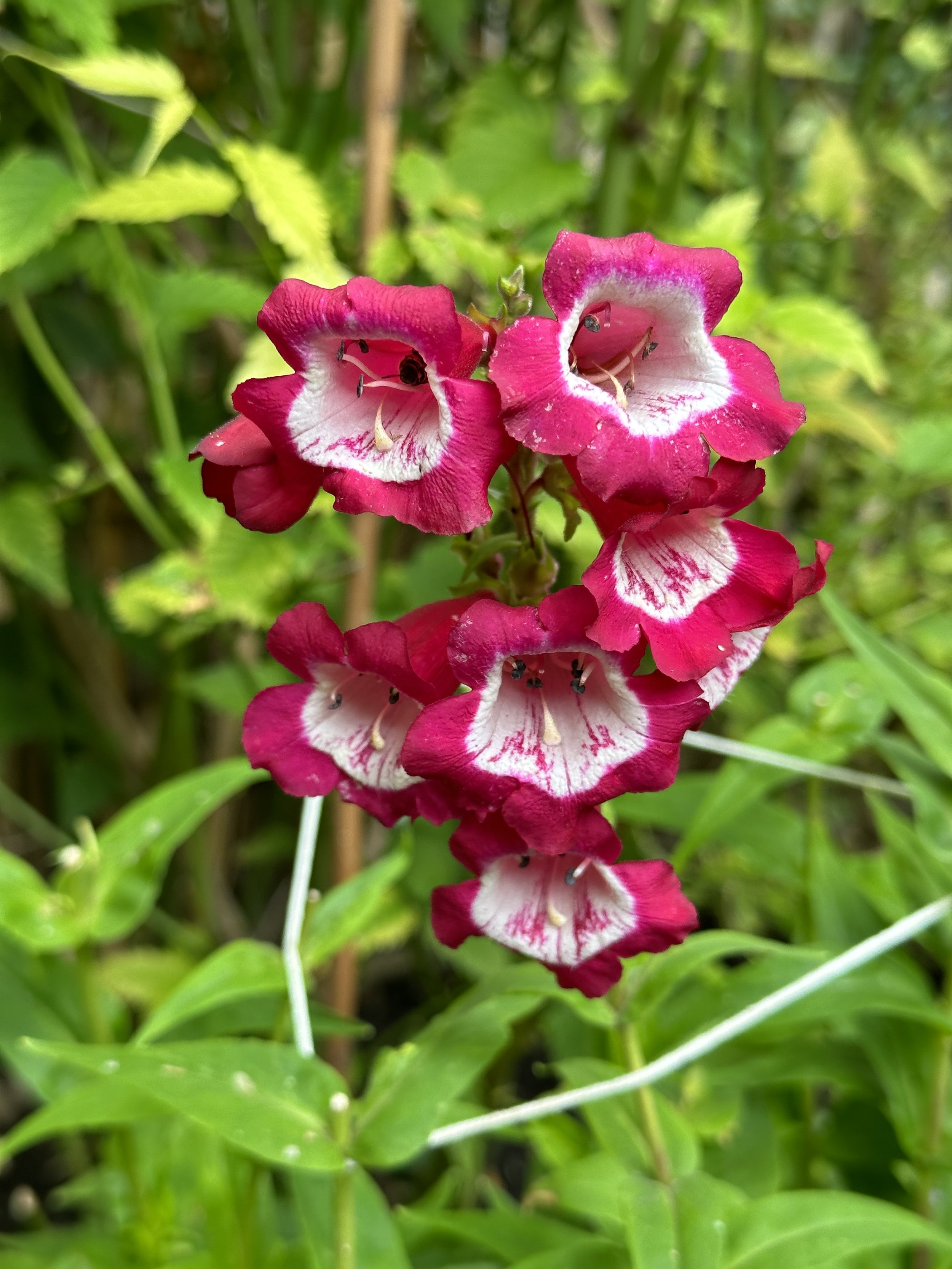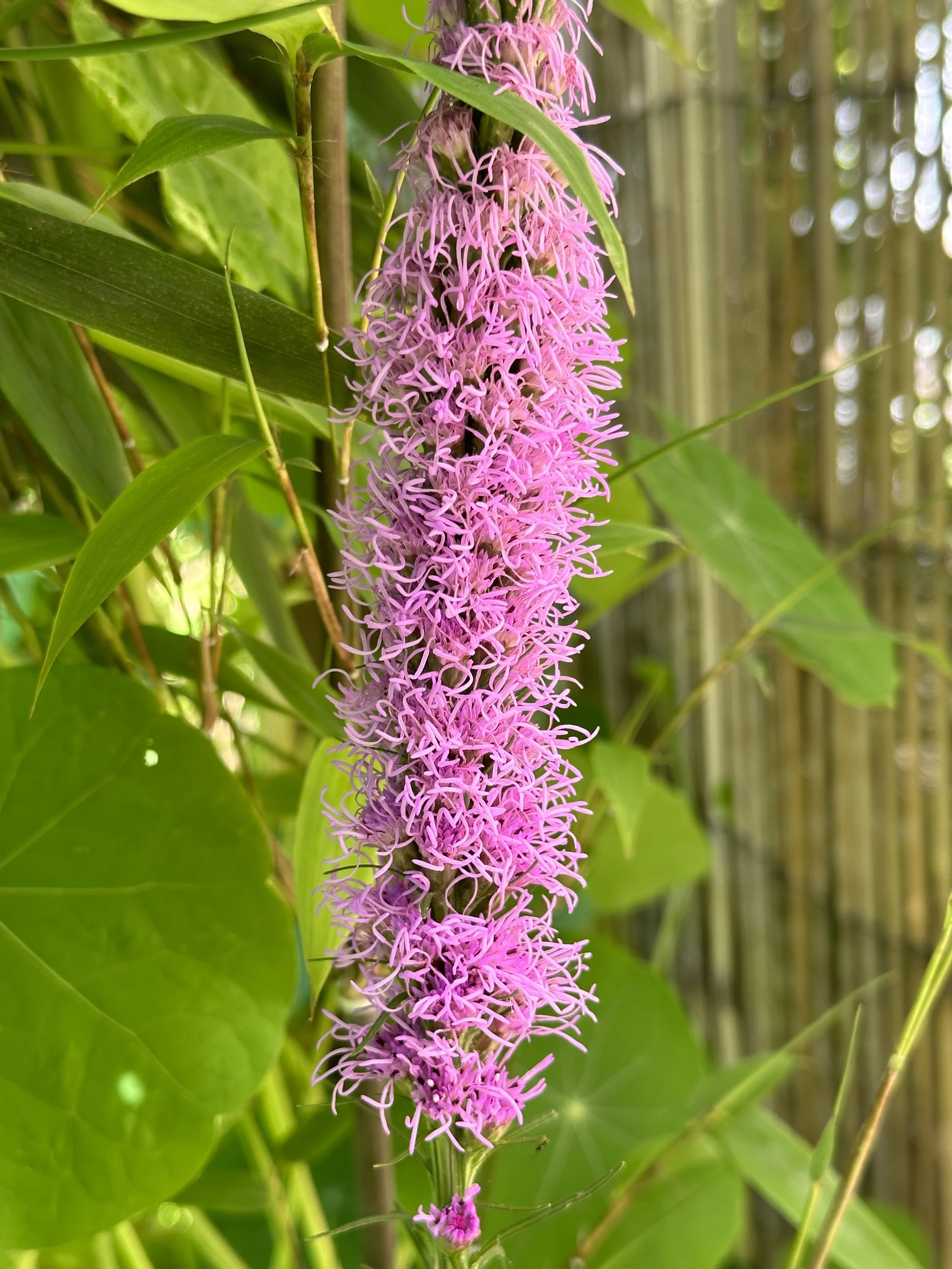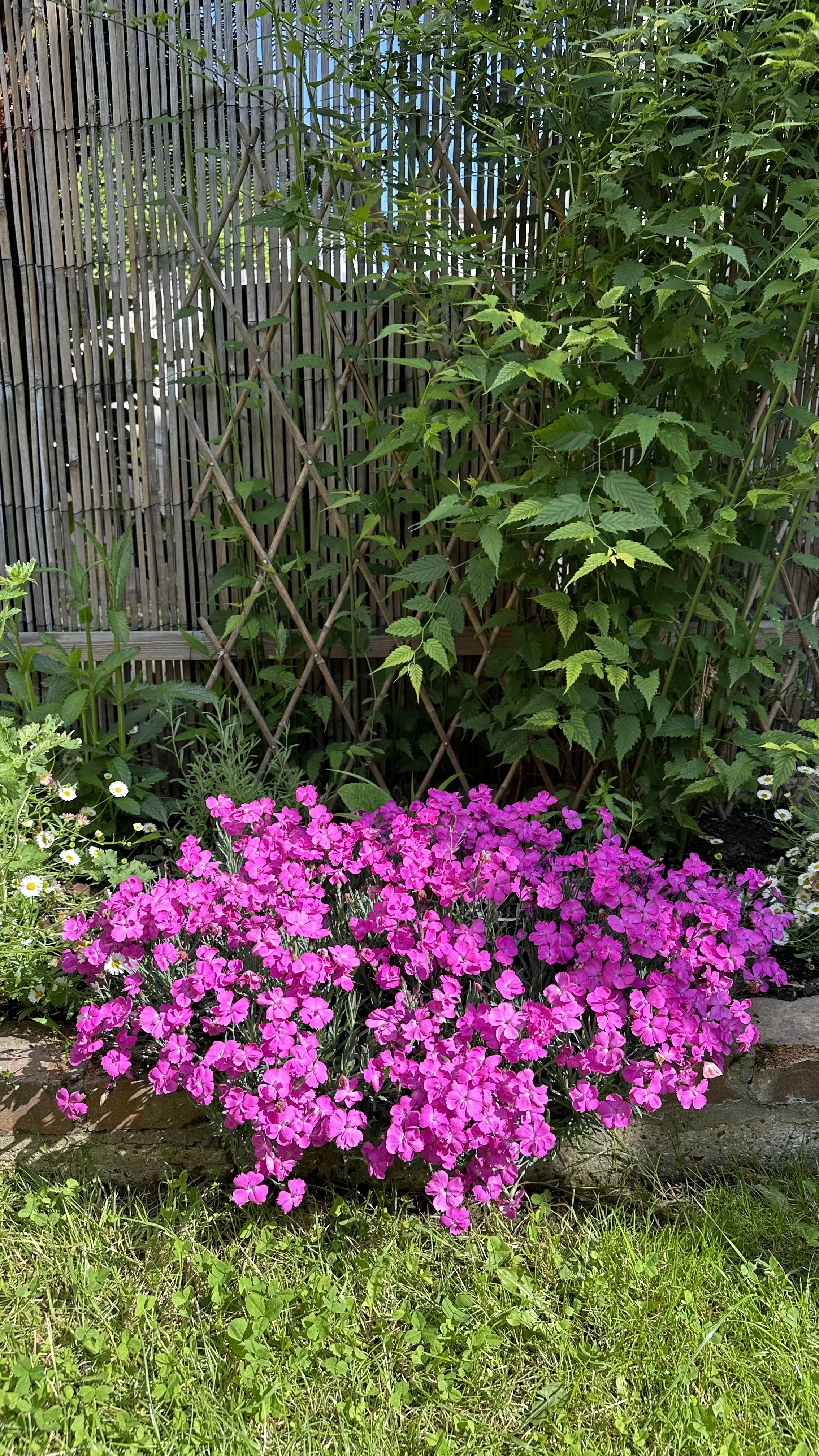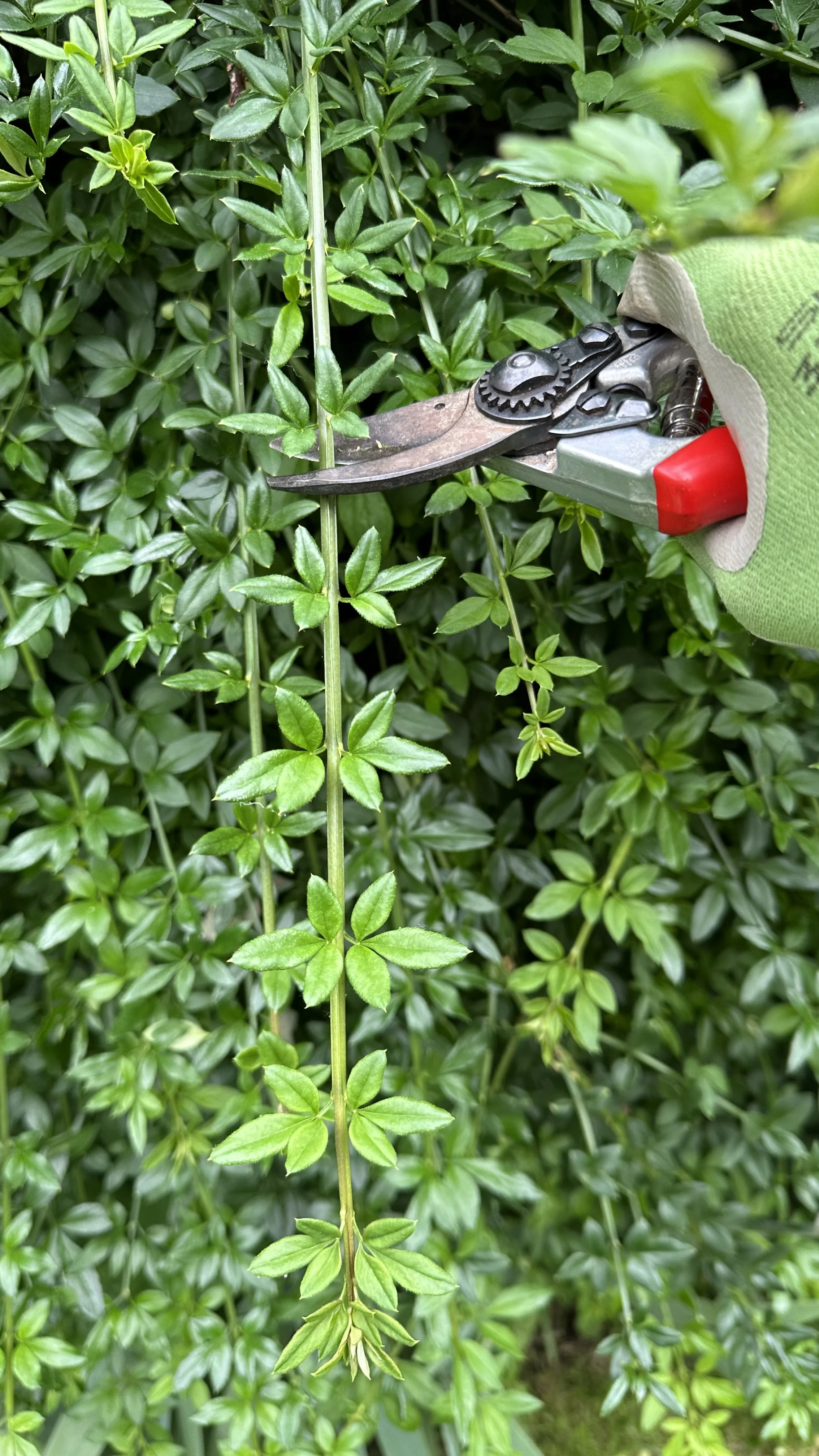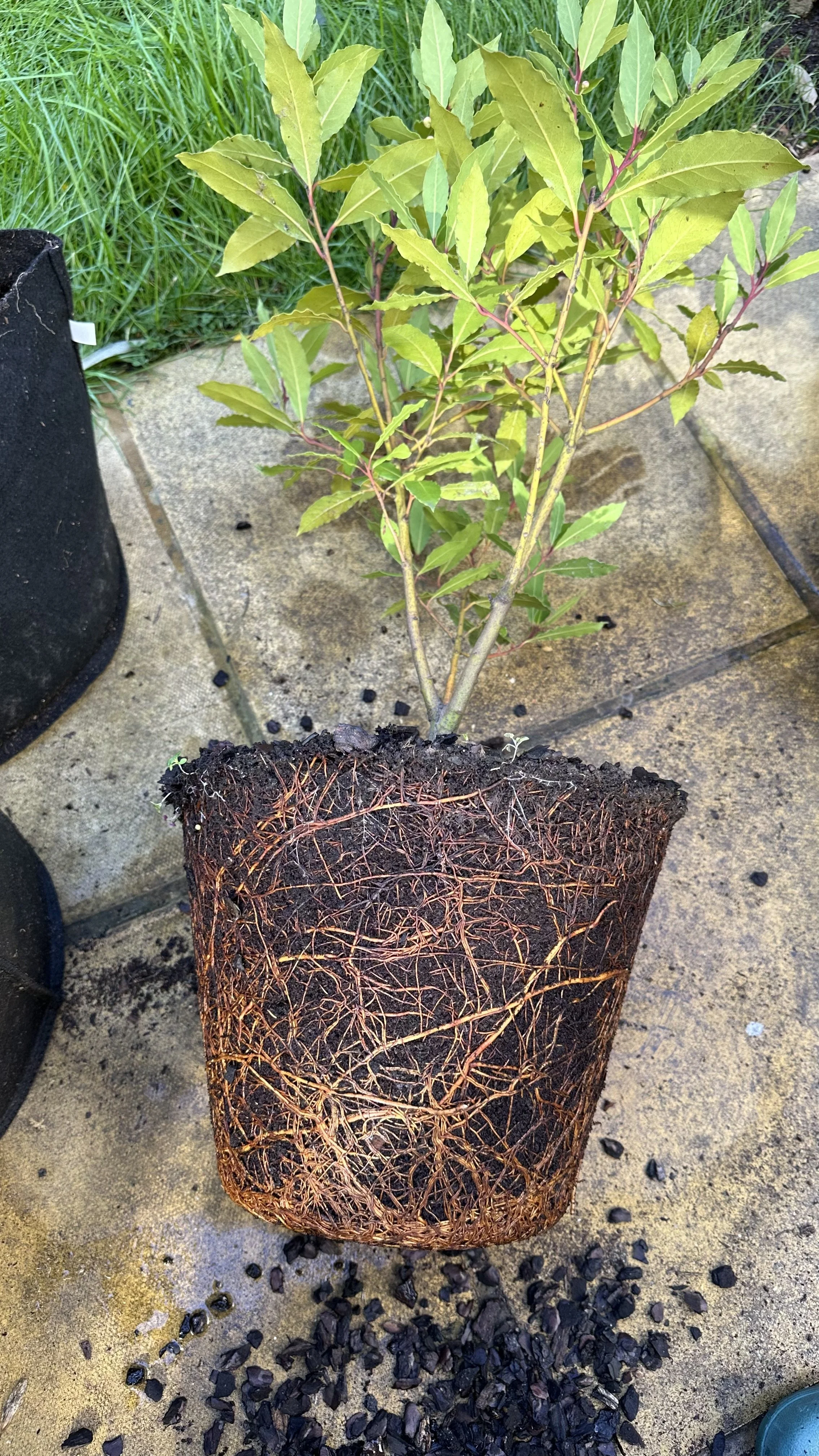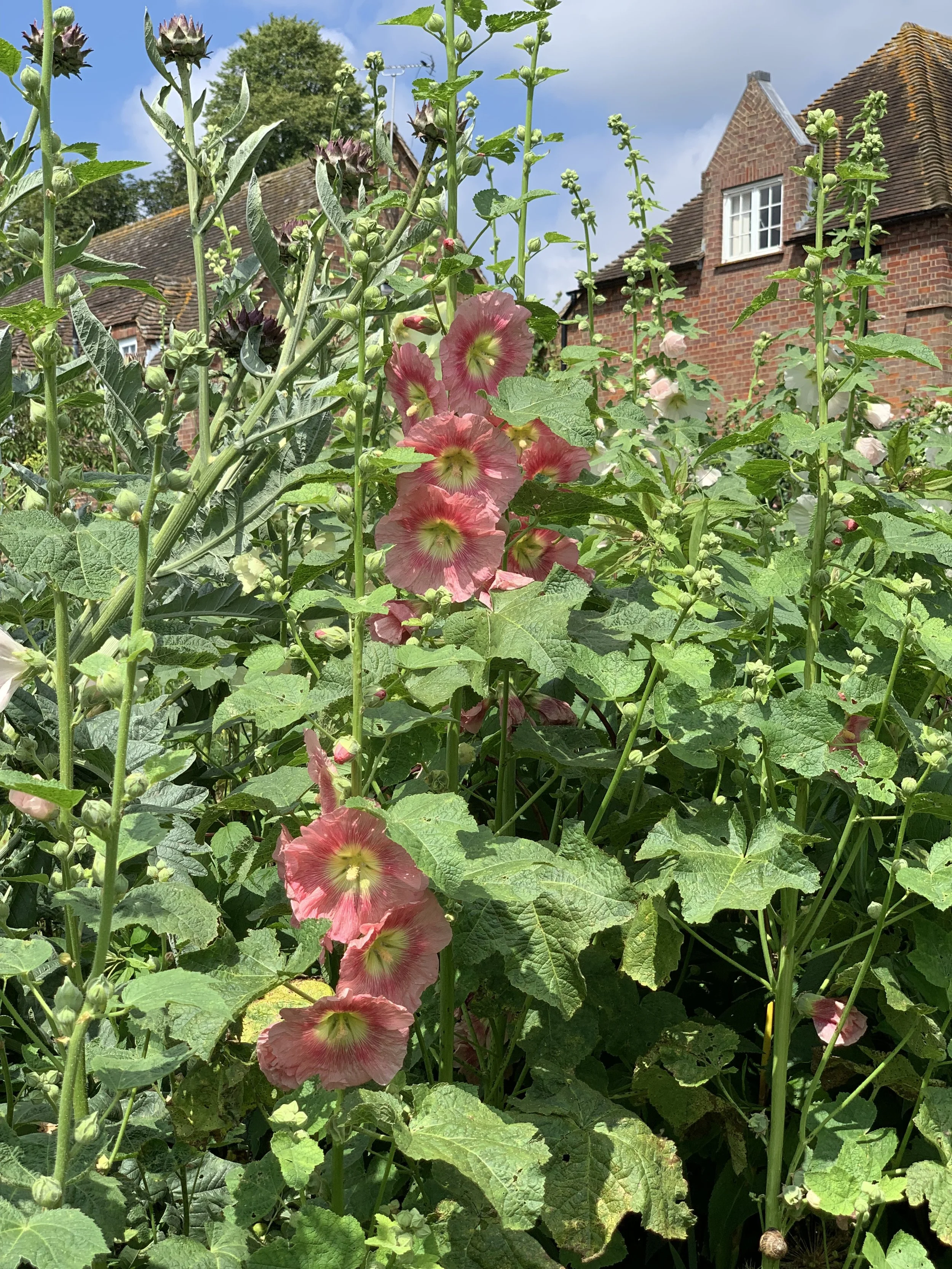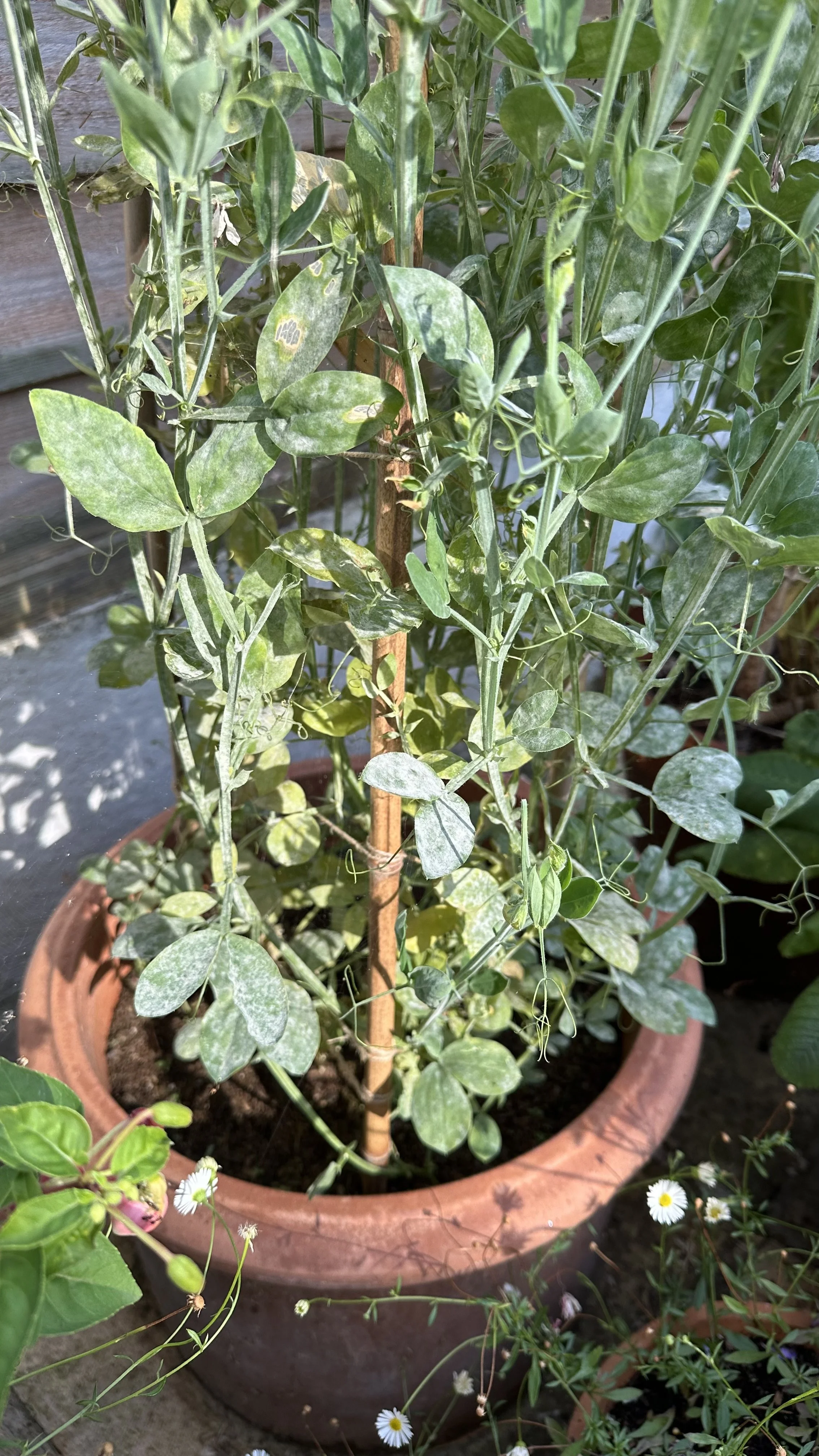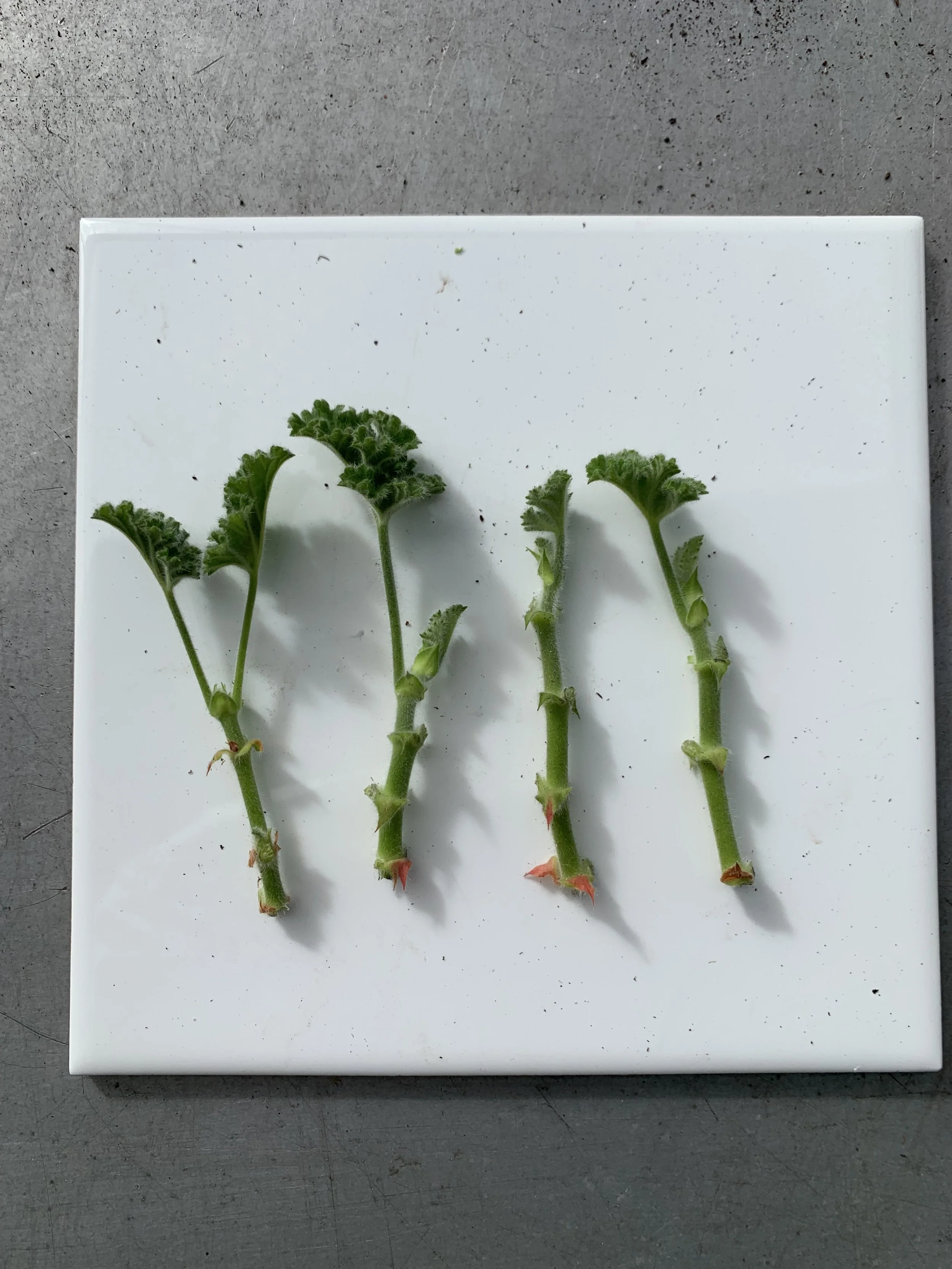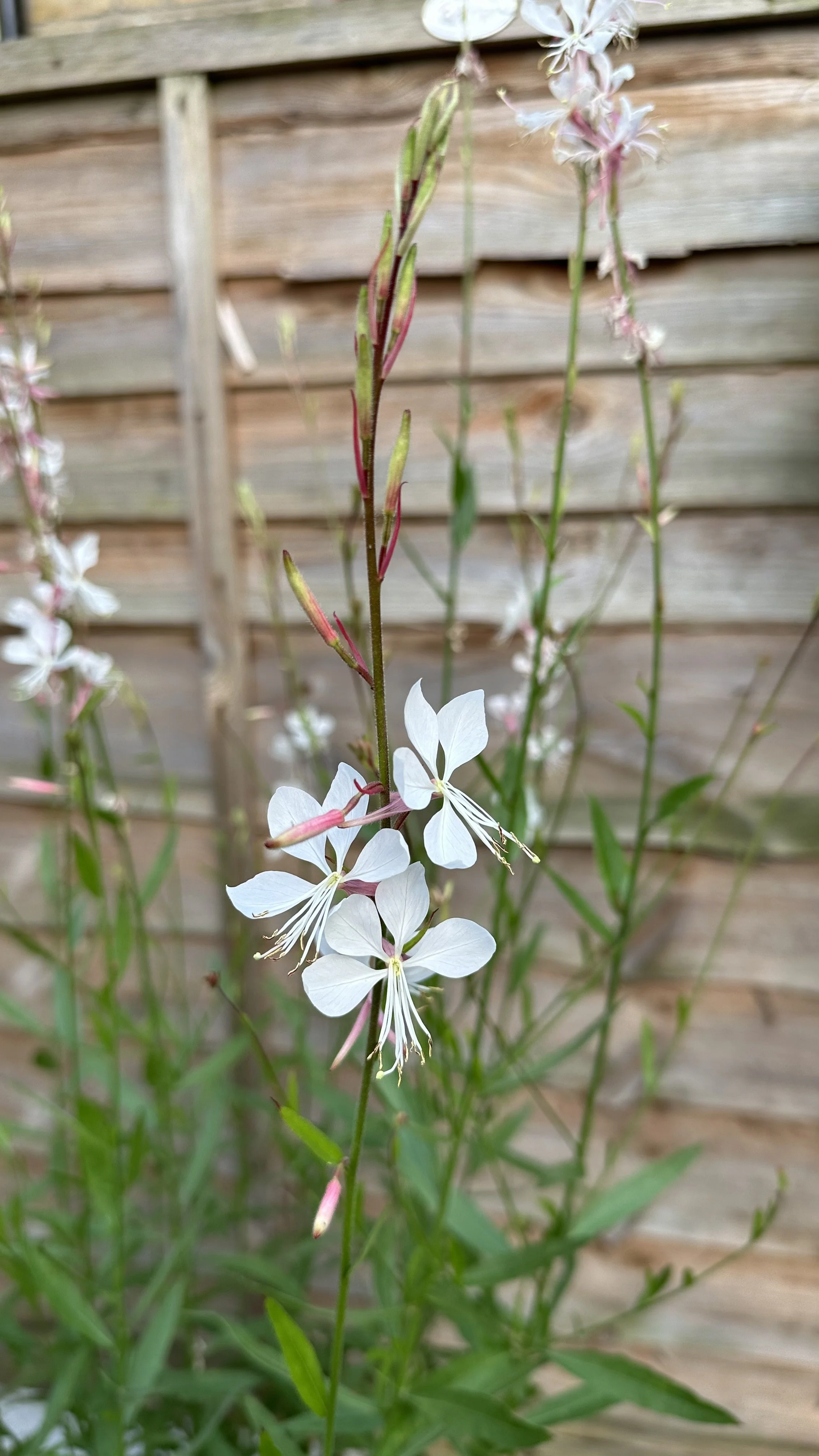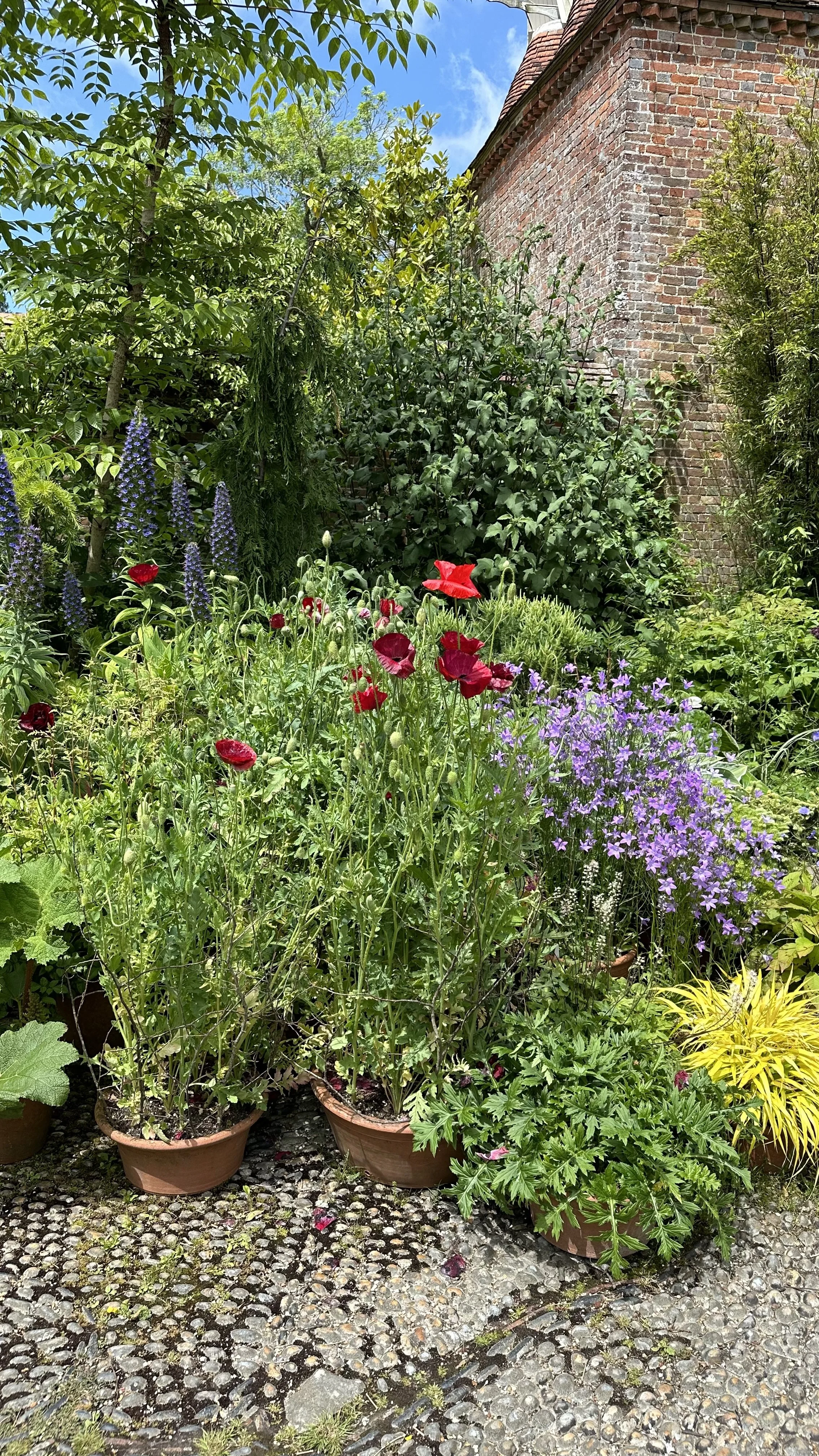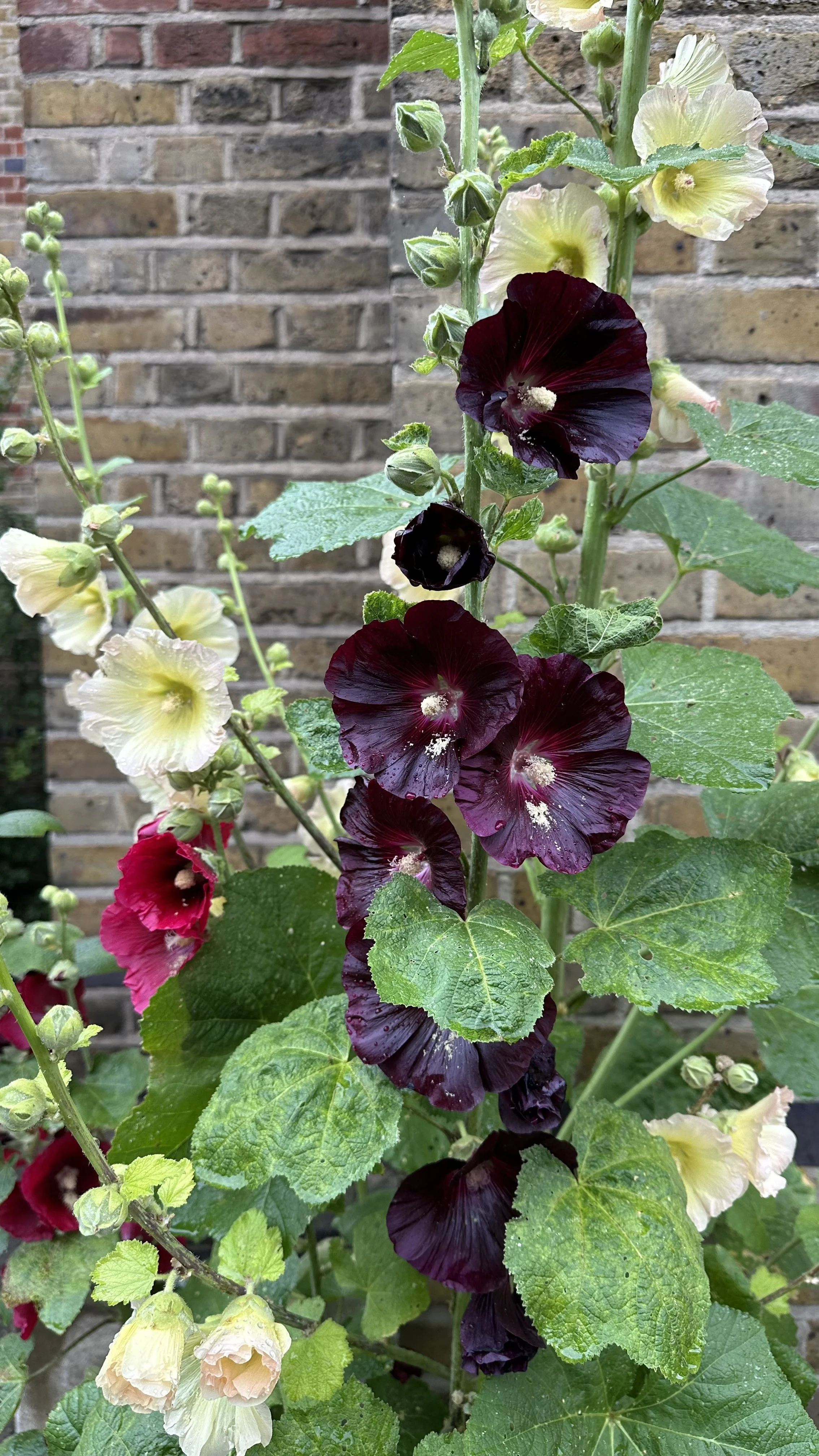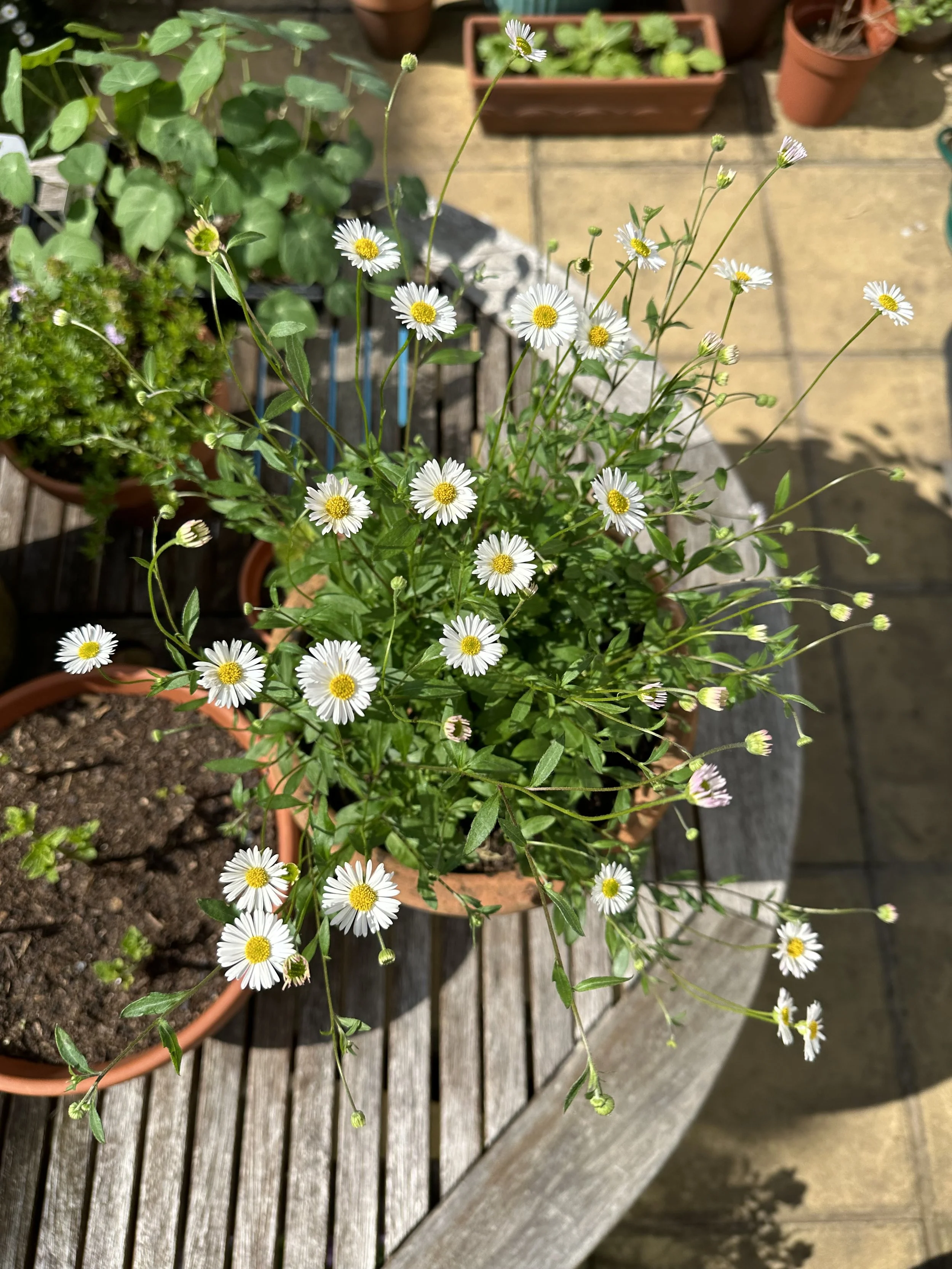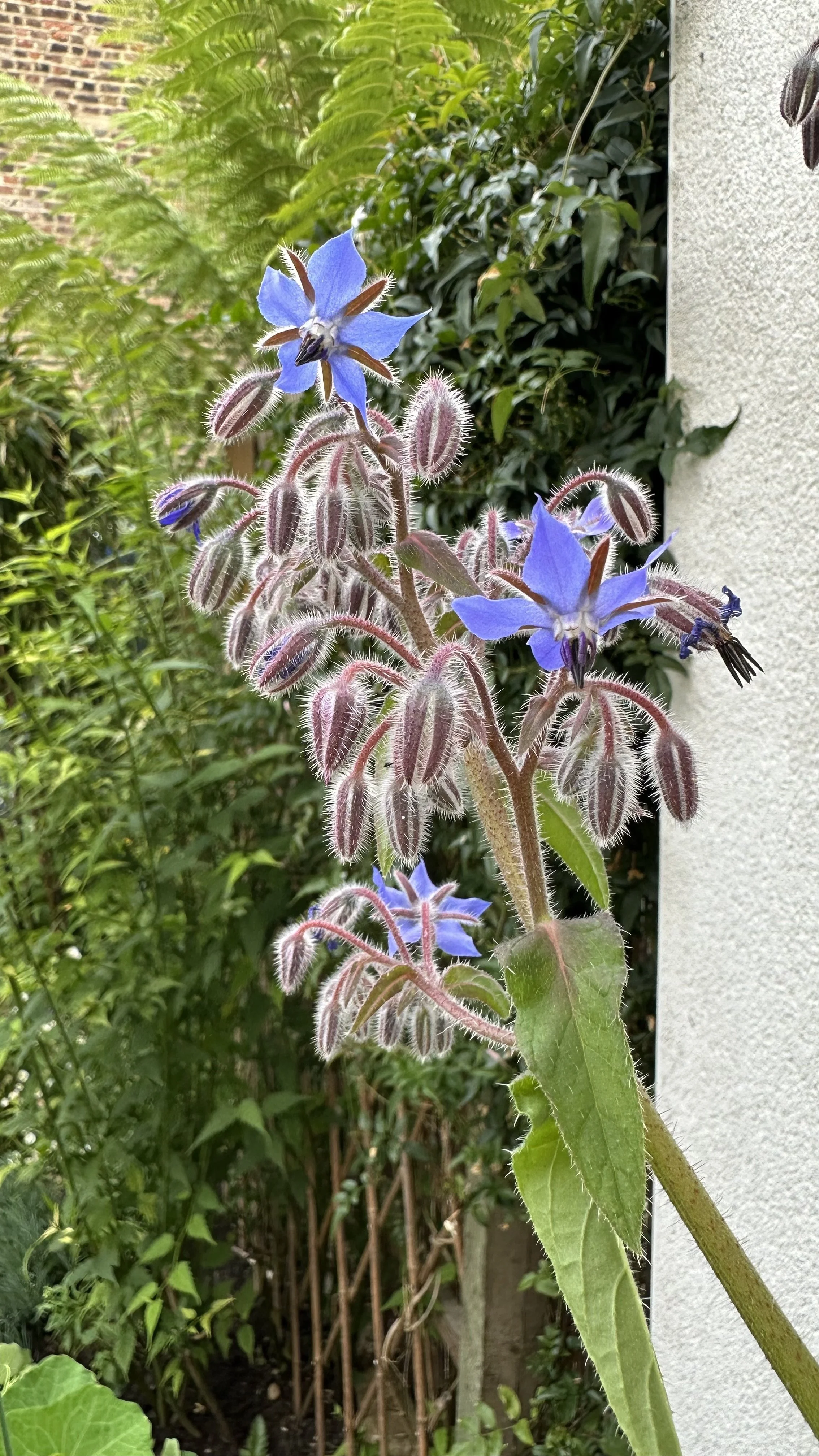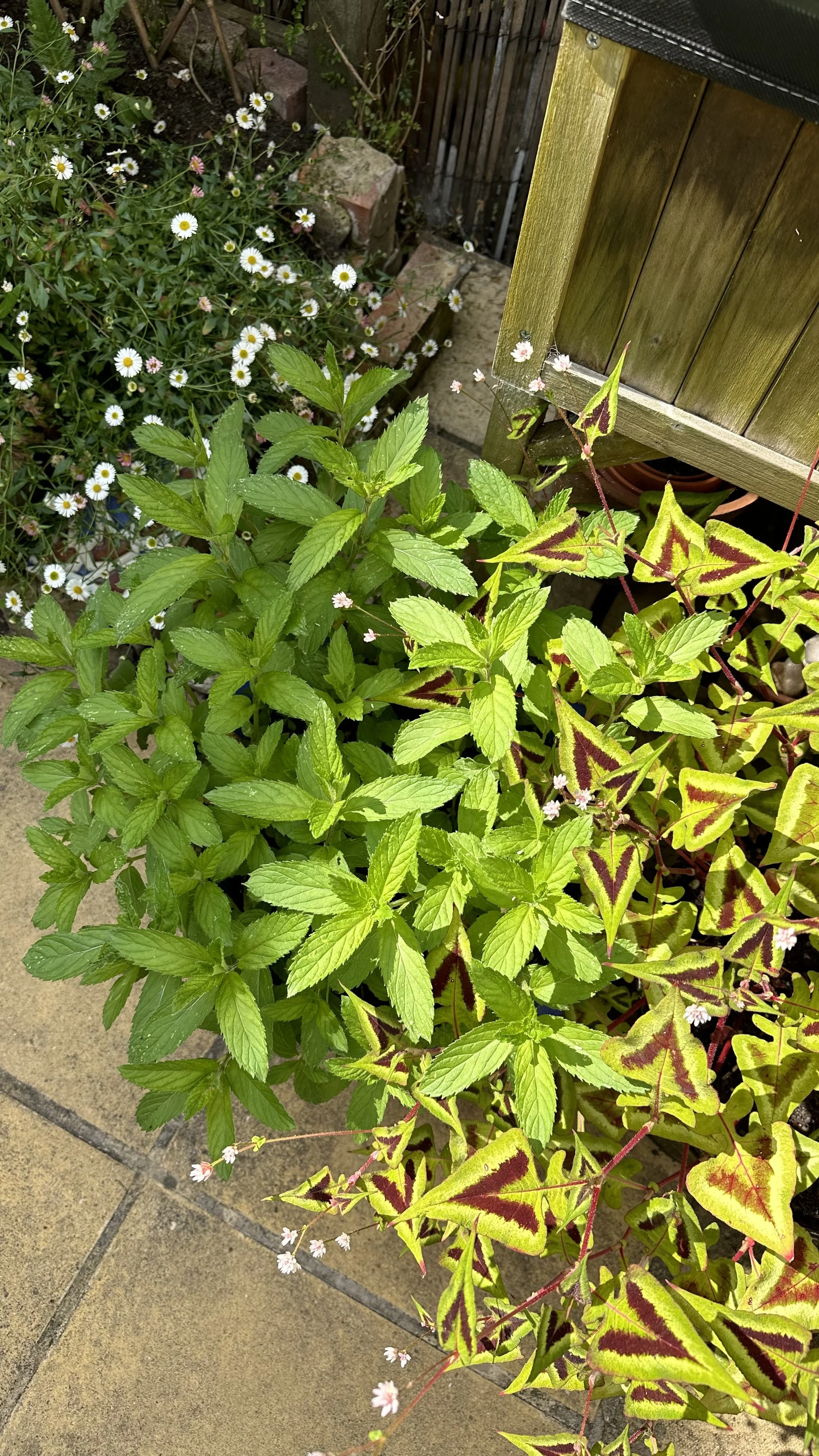Companion Planting Lemon Balm
This website is reader-supported - thank you! This post may contain affiliate links. As an Amazon Associate, I earn from qualifying purchases at no extra cost to you.
If you have ever strolled through your garden and thought about adding a new herb to your collection, let me introduce you to lemon balm, a charming herb also known as Melissa officinalis.
Beyond its amazing lemony scent, lemon balm offers a host of benefits when paired with other plants.
From attracting helpful insects to enhancing the growth of its neighbors and keeping pests away, this versatile herb can truly elevate your gardening game.
In this guide, I'll share insights on how companion planting with lemon balm can make a difference, highlight the best plant partners, and provide tips to help you get the most out of this wonderful addition to your garden.
For more herb gardening tips, check out my guides:
What is Lemon Balm?
If you've ever brushed past a plant and caught a whiff of a fresh, lemony scent, there's a good chance you've met lemon balm.
This lovely herb, officially known as Melissa officinalis, is a member of the mint family.
Originating from southern Europe and the Mediterranean, it's been a favorite in gardens for centuries.
Lemon balm sports bright green, heart-shaped leaves with a slightly crinkled look.
When you rub them between your fingers, they release a delightful citrus aroma that's really refreshing.
In the summertime, the plant produces tiny white or pale yellow flowers that are a magnet for bees and other friendly pollinators.
Standing about 2 to 3 feet tall, lemon balm is a bushy herb that can spread quite easily if it's happy in its spot.
It's a tough little plant that doesn't fuss too much about where it grows, though it does have a soft spot for rich, well-drained soil.
Whether you've got a sunny patch or a bit of shade, lemon balm is likely to settle in just fine.
Beyond its good looks and pleasant scent, lemon balm has a lot to offer.
It's been used in traditional remedies for ages, often brewed into teas to help with relaxation and sleep.
Plus, it's a handy ingredient for making flavored oils and vinegars.
Adding lemon balm to your garden is like inviting a friendly neighbor over.
It's easy to grow, doesn't require much fussing over, and brings along benefits for the rest of your plants by attracting helpful insects.
Here is the lemon balm I recommend growing:
For more herb garden tips, check out my guides:
Best Companion Plants for Lemon Balm
Pairing lemon balm with the right plants can really enhance your garden's health.
Some plants just seem to get along better when lemon balm is around.
Let's dive into some of the best companions and see how they can benefit each other.
Tomatoes and Peppers
Why They Work Well Together
If you're growing tomatoes and peppers, consider planting lemon balm nearby.
It helps repel common pests like aphids and spider mites that love to bother these veggies.
Plus, lemon balm attracts beneficial insects that aid in pollination, which can lead to a better harvest.
Here are the tomatoes I recommend growing:
Tips for Planting
Spacing: Keep lemon balm about 18-24 inches away from your tomatoes and peppers to give each plant room to grow.
Maintenance: Regularly trim the lemon balm to prevent it from overshadowing your vegetables.
Soil Needs: All these plants enjoy rich, well-drained soil, so they're happy sharing the same garden bed.
Here is the potting soil I recommend using:
Brassicas (Brussels Sprouts, Cabbage, Broccoli)
Why They Work Well Together
Lemon balm can be a great ally for brassicas like brussels sprouts, cabbage, and broccoli.
Its scent deters pests such as cabbage moths that typically target these plants.
Here is the cabbage I recommend:
Tips for Planting
Interplanting: Plant lemon balm between your brassicas to create a natural pest barrier.
Growth Monitoring: Keep an eye on the lemon balm's growth to ensure it doesn't overtake the slower-growing brassicas.
Shared Preferences: Both enjoy nutrient-rich soil and consistent moisture, making them compatible neighbors.
For more herb garden tips, check out my guides:
Bee Balm and Mint
Why They Work Well Together
Grouping lemon balm with other herbs like bee balm and mint can create a lush, aromatic herb garden.
They share similar growing conditions and together can attract a variety of pollinators.
Here is the mint I recommend growing:
Tips for Planting
Containment: These herbs can spread rapidly, so consider using containers or garden borders to keep them in check.
Regular Pruning: Frequent trimming encourages bushy growth and prevents them from becoming invasive.
Watering: They all appreciate evenly moist soil, so you can simplify your watering routine. Check out my guide: How Often to Water Mint.
Marigolds and Nasturtiums
Why They Work Well Together
Adding flowers like marigolds and nasturtiums alongside lemon balm not only brings color to your garden but also enhances pest control.
These flowers are known to repel pests like nematodes and aphids.
Here are the nasturtiums I recommend growing:
Tips for Planting
Interplanting: Scatter marigolds and nasturtiums among your herbs and vegetables to maximize their protective benefits.
Soil Compatibility: They thrive in the same well-drained soil preferred by lemon balm.
Fruit Trees and Shrubs
Why They Work Well Together
Planting lemon balm near fruit trees like apple or pear can be beneficial.
It attracts pollinators that help with fruit set and may deter pests that target fruit trees.
Tips for Planting
Sunlight: Ensure lemon balm receives enough sunlight, even when planted under tree canopies.
Spacing: Plant it a bit away from the tree trunk to reduce competition for nutrients and water.
Watering: Be mindful of both the lemon balm's and the tree's watering needs.
A Few Things to Keep in Mind
While lemon balm is friendly with most plants, there are a couple of considerations:
For more companion planting ideas, check out my guides:
Zinnia Companion Plants: Enhancing Biodiversity
Benefits of Companion Planting with Lemon Balm
Companion planting with lemon balm brings a variety of advantages that can enhance the overall health of your garden.
This unassuming herb doesn't just add greenery; it actively supports the plants around it in several meaningful ways.
Attracting Beneficial Insects
One of the most significant benefits of planting lemon balm is its ability to draw in helpful insects.
Pollination Boost:
The small flowers of lemon balm are particularly attractive to bees, butterflies, and hoverflies.
By inviting these pollinators into your garden, you increase the chances of fruiting plants and vegetables setting more fruit, leading to better harvests.
Natural Pest Control:
Beneficial insects like ladybugs and lacewings are also lured by lemon balm.
These insects feed on common pests such as aphids, mites, and whiteflies, providing a natural way to keep these harmful populations in check without resorting to chemicals.
Improving Soil Health
While lemon balm isn't a heavy feeder, it contributes positively to the soil in which it grows.
Adding Organic Matter:
As the plant matures and sheds leaves, it enriches the soil with organic material, improving its fertility and structure over time.
Enhancing Soil Structure:
The root system helps to aerate the soil, promoting better water drainage and root development for nearby plants.
Ease of Growth and Maintenance
Lemon balm is a hardy herb that doesn't require much fuss, making it an excellent companion for many plants.
Low Competition:
It coexists without overly competing for nutrients or water, allowing neighboring plants to thrive alongside it.
Adaptability:
The herb is tolerant of various growing conditions, from full sun to partial shade and different soil types, which means it can fit into many spots in your garden.
Minimal Care Required:
Regular pruning helps keep it in check, and aside from that, it doesn't demand much attention.
Promoting Biodiversity
Incorporating lemon balm into your garden supports a more diverse and resilient ecosystem.
Habitat for Insects:
It provides nectar and shelter for a variety of insects, contributing to the ecological balance.
Enhancing Garden Beauty:
With its lush foliage and delicate flowers, lemon balm adds texture and charm to your garden.
Want to learn more about companion planting? Check out my guides:
The Best Companion Plants for Tomatoes
Quick FAQs
Can lemon balm grow alongside mint varieties like spearmint or peppermint?
Yes, lemon balm and mint share similar growing conditions and can be planted together.
Just be mindful that both can spread quickly, so consider using containers or barriers.
Are there any plants that shouldn't be planted near lemon balm?
Lemon balm is generally friendly with most plants.
However, it's best to avoid planting it near herbs or plants that prefer drier conditions.
How does lemon balm affect the soil?
Lemon balm doesn't significantly alter soil conditions but prefers rich, well-drained soil.
It's a good idea to monitor soil nutrients when planting with other herbs.
What are some uses for lemon balm leaves?
The leaves can be used in teas, salads, and even desserts.
They're also popular in aromatherapy and homemade skincare products.
For more companion planting ideas, check out my guides:
Rhubarb Companion Planting: Do's and Don'ts
Thriving Together: The Best Companion Plants for Swiss Chard
Wrap-Up
Incorporating the lemon balm plant into your garden is a great way to enhance both its health and productivity.
By choosing the right lemon balm companions—like tomatoes, peppers, and brassicas—you can create a harmonious environment where plants support each other's growth.
Remember that lemon balm and its balm companions thrive best in rich, well-drained soil.
With proper care and attention to the growing conditions, your balm plant will not only flourish but also contribute positively to your entire garden.
So go ahead and explore the benefits of companion planting with lemon balm—you might just find it's the perfect addition to your herb garden.
Pin this post to save it for later:








